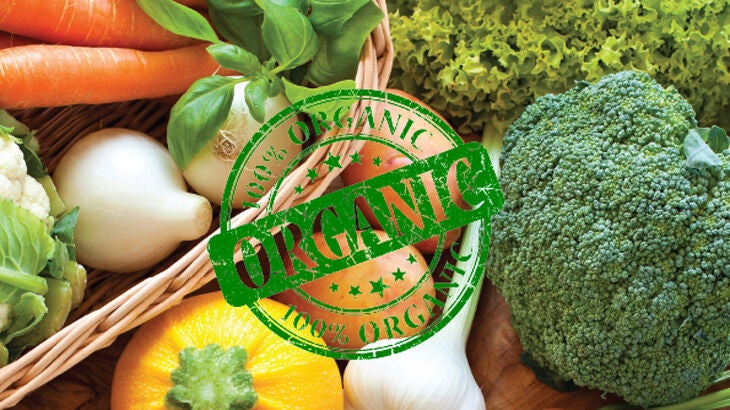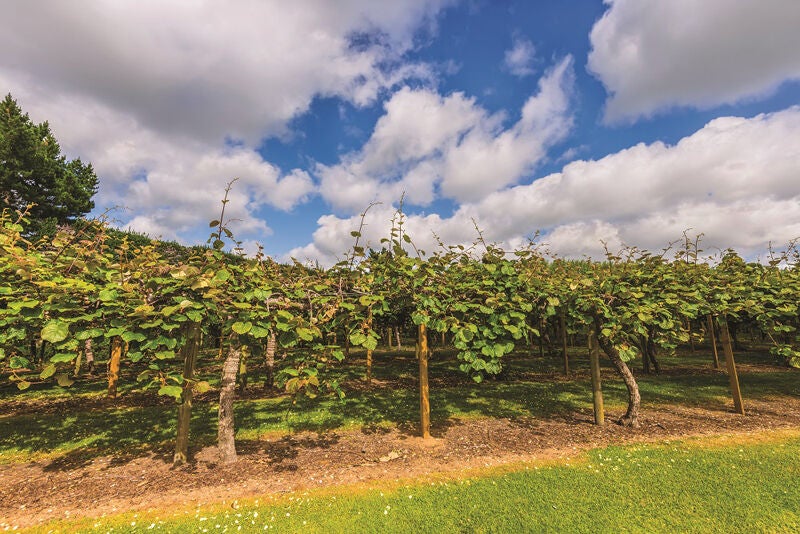Rural Insight: Organic demand opens exciting land use options

The recent Organic Aotearoa market report highlighted the strong shift among consumers to organic shopping, and the growth in a market that domestically is now worth quarter of a billion dollars, having grown 45% in only four years.
The surge in consumer interest is now being reflected by interest among farmers and investors in properties suitable for conversion to organics, or already holding organic certification. Of the $240 million of organic exports last year, fresh fruit and vegetables remain the largest by value, accounting for $108 million of that.
Bayleys national country manager Simon Anderson said the wide spectrum of organic production in New Zealand has meant every aspect of protein, fruit and vegetable production is offering opportunities that deliver strong returns to those prepared to commit to the sector.
“The highest earning organic crop is kiwifruit which accounts for about 20% of all organic exported produce. Of that the SunGold organic fruit are the premium fruit of the crop, with insufficient supply to meet demand.”
The growth experienced in consumer demand locally reflects what is also happening off shore.
The Organics Aotearoa New Zealand market report highlighted the 346% increase in food sales globally since 2000, with total sales now accounting for US$80 billion of value.
Alongside that increase in sales has been a jump in the area of land dedicated to organic production. About 1% of the world’s farm land is now committed to organic production, with some countries running well above that in area.
Australia can claim the largest area of 17 million hectares, thanks in part to extensive range country, while Europe has 11 million hectares, or about 10% of its farm area in organics.
Here in New Zealand the area classed as organics is 74,000ha, about .5% of the farmed area, averaging $33,000 a hectare in gross export earnings last year.
Organics Aotearoa chief executive Brendan Hoare said his early days in landscape design extended into helping “hapless hippies” who had moved to the country wanting a better life by farming a small block organically.
“We used to end up helping them avoid divorce by doing a management plan for their block. There was, and sometimes still is, a bit of a disconnect there between what people think organics involved, and the reality of making an organic operation work, and pay its way.”
However in the past 20 years the infrastructure to support the sector has grown. Where once growers may have had to make their own organic fertiliser for example, certified manufacturers now provide a range of products and treatments.
He points to a sector of the global food market that has become infinitely more sophisticated as large European and United States corporates buy into established family owned organic brands.
Interest in organics as a land use option for dairying has also lifted in recent months thanks to Fonterra’s announcement it would pay North Island organic suppliers a whopping $9.20/kg milk solids, at the time over double what conventional suppliers were anticipating for the season.
The global market for organic dairy products is projected to grow by 12% a year into the future, according to the Organics Aotearoa NZ 2016 organic sector report.

This is off a base that represented 11% of total global dairy sales in 2013, with the bulk of sales found in Denmark (24%), Sweden (12%) and the United Kingdom (7.5%).
But the key drivers of food safety, animal welfare and environmental stewardship are also starting to play out in developing Asian markets. China and India are identified as key growth areas for organic dairy products.
Even at home in NZ sales have been growing rapidly, with a reported 50% increase in organic sales of milk in the past year.
Meantime the Organic Dairy Hub Co-operative (Dairy Hub NZ) is forecasting payment of $8.00/kg MS for the coming season to farmers supplying it with milk.
A year into its existence it has had intense interest from farmers in the South Island wishing to supply.
Dairy Hub founder Bill Quinn the co-operative is keen to expand its supplier base into the South Island, and there is no shortage of farmers keen to talk.
“We are currently working with 30 larger farmers in South Canterbury and North Otago on the transition process to go organic, the interest is certainly there.”